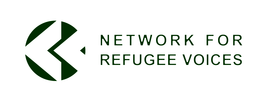DISPLACED PEOPLE IN 2016
REFUGEES IN 2016
The global refugee crisis
Today, we are witnessing an unprecedented level of human mobility. Roughly 65.6 million were forcibly displaced in 2016, including over 25.4 million refugees, 3 million asylum seekers and over 40 million internally displaced persons. Many people are fleeing armed conflict, terrorism, and persecution. Others are in search of new economic opportunities. Still others are on the move in response to climate change and other environmental factors.
The international refugee system has been tested with the largest refugee exodus since World War II and has fallen short. Despite moral and legal obligations under refugee law, international humanitarian law and international human rights law, an increasing number of states have shifted their focus from protection to stemming refugee flows. These policies have resulted in increasing the onus on overburdened states, most of whom are low and middle-income countries. In this environment, refugees increasingly face inhumane treatment marked by detention and xenophobia.
The international refugee system has been tested with the largest refugee exodus since World War II and has fallen short. Despite moral and legal obligations under refugee law, international humanitarian law and international human rights law, an increasing number of states have shifted their focus from protection to stemming refugee flows. These policies have resulted in increasing the onus on overburdened states, most of whom are low and middle-income countries. In this environment, refugees increasingly face inhumane treatment marked by detention and xenophobia.
“The bitter truth is [the Global Refugee Summit] was called because we have been largely failing. Failing the long-suffering people of Syria, in not ending the war in its infancy. Failing others in now chronic conflict zones, for the same reason. Failing millions of migrants who deserve far more than lives marked by cradle-to-grave indignity and desperation...”
- Zeid Ra'ad Al Hussein, UN High Commissioner for Human Rights
Refugee representation GAP
Over the course of the next years, migration policy will be an international focus. Negotiations are underway at United Nations headquarters to adopt a Global Migration Compact in 2018. At the European Union, addressing mass migration and refugee flows is at the top of the European Union agenda. In Geneva, the United Nations Refugee Agency and member states are defining a new Global Refugee Compact. Yet, the United Nations, the European Union and state policy makers exclude refugees from the decision-making processes that define policy that shapes their lives.
Refugees and migrants are essential stakeholders for defining and implementing comprehensive and sustainable global migration policy. Too often refugees are brought into international discussions after policy has been defined. They are included as token victims of the crisis, not active agents of change or experts with personal and professional field experience. Refugee-led organizations are working to empower and support refugee populations around the world. Refugees have the knowledge, skills and network to influence refugee policy for the better. If policy is designed to support existing skills, capacities and needs that occur at the grassroots level of the refugee crisis, more appropriate and sustainable solutions may be found. Refugees are the most affected by policy decisions and the primary actors of integration policy; their involvement as stakeholders in the decision-making process is critical to policies that can ensure resilience and sustainability. We urge policy-makers and non-governmental organizations to make space for the participation and self-representation of those most affected by migration policy: refugees and migrants themselves.
Refugees and migrants are essential stakeholders for defining and implementing comprehensive and sustainable global migration policy. Too often refugees are brought into international discussions after policy has been defined. They are included as token victims of the crisis, not active agents of change or experts with personal and professional field experience. Refugee-led organizations are working to empower and support refugee populations around the world. Refugees have the knowledge, skills and network to influence refugee policy for the better. If policy is designed to support existing skills, capacities and needs that occur at the grassroots level of the refugee crisis, more appropriate and sustainable solutions may be found. Refugees are the most affected by policy decisions and the primary actors of integration policy; their involvement as stakeholders in the decision-making process is critical to policies that can ensure resilience and sustainability. We urge policy-makers and non-governmental organizations to make space for the participation and self-representation of those most affected by migration policy: refugees and migrants themselves.
Quick Facts
- 86% of the world’s 22.5 million refugees are hosted in developing countries, of which many are not part of 1951 Convention relating to the Status of Refugees
- 60% of all refugees are hosted in just 10 countries around the world
- Over half of all refugees in the world are under the age of 18
- There are 65.6 million displaced people in the world, 30% of whom are hosted in Africa, 26% in MENA, 17% in Europe, 16% in the Americas and 11% in Asia and the Pacific
- 20 people are forcibly displaced every minute as a result of conflict or persecution

